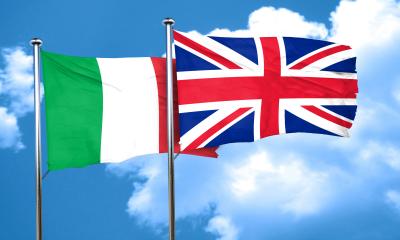British Embassy seeks to calm post-Brexit uncertainty

ROME – Amid scores of concerned British citizens following the UK’s planned break from the EU, Ambassador to Italy Jill Morris made assurances that a smooth transition was "top of the agenda" whilst speaking in Rome on Wednesday night.
It’s certainly a stressful time for British citizens living in Italy following the UK’s decision to leave the European Union. During the meeting, which took place on Wed. 11, July in the Anglican Centre in Rome, there was a strong turnout of British expats with many specific concerns for their future. Within this atmosphere of uncertainty, Ms Morris stressed that the Embassy’s "productive and collaborative relationship with the Italian government" will ensure a "harmonious transition for those British citizens who have chosen to make their life in Italy."
To begin with, the most dominant frustration voiced by expats was their inability to have voted in the UK’s decision on Brexit – having chosen to make their lives around the European project, they were "disenfranchised" by their country.
The Ambassador, speaking frankly and directly, stressed that there is now nothing the government can do to reverse the situation; the one certainty in this uncertain situation is that there will not be a second referendum and that the UK will be leaving the European union at the end of March next year.
All we can do now, it seems, is to look towards future negotiation issues. After voicing the Embassy’s commitment to communicating with British nationals as quickly and regularly as possible, the Ambassador insisted "onnward movement around Europe is now top of the agenda; those who have chosen to live here should have their expectations respected and be able to move around the EU freely." Again looking to the future, she mentioned the new economic and security proposal released by Theresa May; although consistent with the position that Brexit should mean control over taxes, laws, and borders, the proposal is also committed to ongoing harmonisation on goods.
As soon as calm was established more concerns were raised. If deciding to move back to England, can Italian spouses accompany? Will access to national health be the same? What about pension rights? Ms Morris pointed to the existence of family reunification laws and rights to national health which are in fact nothing to do with Brexit. However, in terms of pension laws and the question of dual citizenship she could not advise, but as with many questions promised that the answers would emerge with the publication of the ‘withdrawal treaty’, which is expected by October.
Whilst there was brief mention of the fear surrounding a lack of a deal at all, the Ambassador dismissed this as the "worst case scenario"; what the government is striving for is "a very good deal, which keeps the UK close and yet respects the decisions and autonomy of the European Union."
cb



